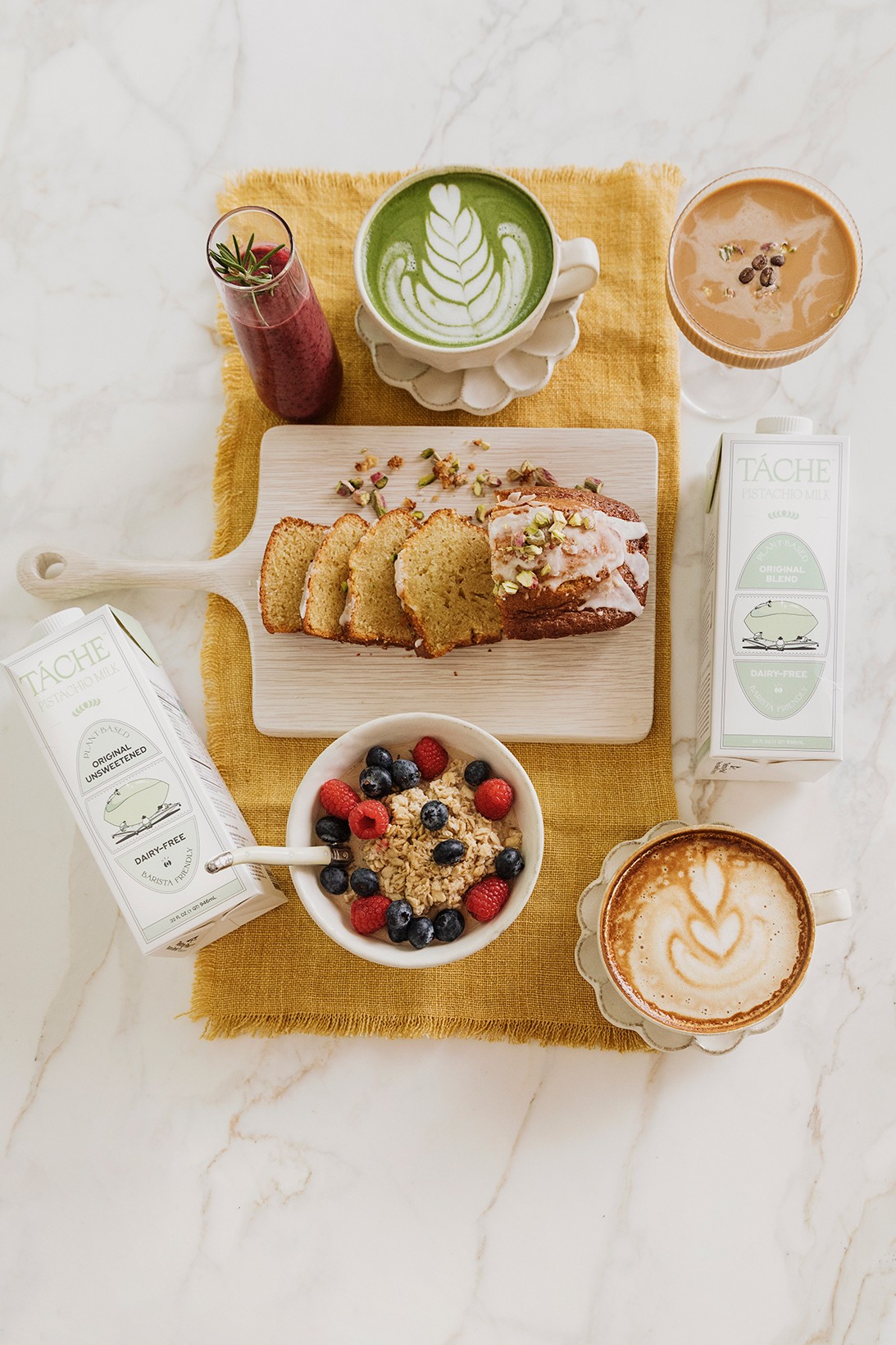Roxana Saidi, the founder and CEO of Táche, is aiming to turn the plant-based milk world on its head by introducing pistachio milk to the United States.
Having grown up surrounded by the flavorful and delicious nut, it was only five years ago that the Iranian American entrepreneur got the idea to make a product out of pistachios. After playing around with multiple recipes for pistachio milk, Táche, pronounced like the second syllable in “pistachio,” was finally born. Backed by her serial entrepreneur father, Morteza Saidi, Roxana was then able to turn her idea into a barista-friendly alternative.
Unlike other pistachio-based nut milk currently available in the market, which contains almond and almond extract, Táche makes its milk exclusively using pistachios. In doing so, Táche provides extra health benefits and a complete source of protein along with a silky smooth taste. Additionally, it doesn’t contain rapeseed or canola oil, which is often used as an emulsifier for other plant-based milk products and can be highly processed.
Táche is also eco-friendly for the planet. Unlike almond milk that requires an immense amount of water to produce, pistachio milk has a smaller water footprint and uses 75% less than its counterpart. On top of that, Táche has a shelf life of 12 months and comes packaged in recyclable materials.
Táche’s delicious pistachio milk arrives in Original Blend (which is sweetened with cane sugar) or Original Unsweetened. The original flavour contains 7g sugar and 80 calories per serving, and the Keto-friendly unsweetened variety has less than 1g sugar and only 50 calories. Both variations taste great in coffee, matcha, cocktails, smoothies, baked goods, cereals, and on their own.
Táche is currently available to purchase in the New York-New Jersey-Connecticut tri-state area, Midwest, and California, and additionally online in packs of six, with one 32 fl oz carton priced at $7.99 USD/$10.40 CAD. The company donates a portion of its profits to support education and empowerment for young girls in local communities.
All images in this article are courtesy of Táche.








